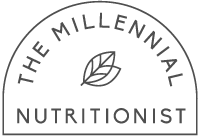How to Integrate High Protein Plant Foods in a Vegan Diet
Written by Jordyn King, MS, BS
The Common Misconception of Vegans and Vegetarians
The definition of a vegan is an individual who only consumes plant-based foods and does not consume any animal products or by-products including eggs, meat, cheese or dairy products. On the other hand, vegetarians do not consume any animal meat sources like chicken or fish. However, they can consume animal byproducts. A common misconception about vegetarian and vegan diets is that they lack sufficient protein intake. However, many nutritional professionals agree that a well-planned vegan or vegetarian diet can provide all the nutrients and proteins that you need to have a healthy balanced diet. With a high protein diet, it can promote muscle strength, satiety and weight loss, if preferred. Vegans can get a bad rap for having enough protein in their diet. Again, the reality is it’s fairly simple to get plenty of protein with a vegan diet. It is essential to know what high protein plant based food you are consuming in your meals if you are a vegan or vegetarian.
Plant Based Protein Sources
There are lots of protein plant sources that you can integrate in your vegan daily food habits and you don’t have to sacrifice any taste, flavor or variety either. Providing plant-based protein options is as reliable as incorporating animal-based protein. Plant-based protein can include tofu, beans, lentils, and whole grains like quinoa.
How Does Protein Replenish and How Much Protein Should We Consume?
When you do your daily workouts or walks to perform strenuous activities your muscle fibers are actually being torn and damaged by straining in your body. However, consuming daily protein food sources, it helps repair and replenish the damaged muscle fibers by fusing them together to gain new muscle protein strands. Your body uses satellite cells to add more nuclei to the muscle cells which directly causes the cells to grow for increased performance as well. Again, no matter whether your protein source comes from an animal or a plant based protein source like different meats or tofu, your body still recognizes it as a protein source. For the proper protein intake in grams that each individual needs as a nutrition professional, I recommend, he or she should consume 1.4-1.6 grams of protein per kilogram of body weight (2.2 x bodyweight(kg)).
Many Advantages in a Vegan Diet
There are many advantages to providing a vegan diet and health benefits including maintaining a higher fiber diet, increasing fruit and vegetable intake to provide more vitamins and minerals and having reduced rates of heart disease. It is also a little bit of a challenge finding high protein low carb snacks on a vegan-based diet; this is due to plant-based foods containing high amounts of carbohydrates compared to animal protein counterparts. It is essential to get vegan protein foods in order to increase your fiber, healthy fats and other important nutrients to make a balanced diet throughout the day. Keep in mind, if your are a new vegan, do some search and examine what high protein plant foods are out there since it can be easy to skip out of these food products.
Here is a list of plant foods that contain high amounts of protein intake per serving:
Tofu, Tempeh and Edamame- 10-19 grams of protein per 3.5 ounces
Lentils- 18 grams of protein per cooked cup
Chickpeas and Most Varieties of Beans- 15 grams of protein per cooked cup (240 ml)
Nutritional Yeast- 5 grams protein in 1 TBSP
Spelt and Teff (Grains) - farro, barley - 10–11 grams of protein per cooked cup
Hemp Seed= 10 grams per oz.
Green Peas- 9 grams of protein per cooked cup (240 ml)
Spirulina- Two tablespoons (30 ml) provide you with 8 grams
Amaranth and Quinoa- 8–9 grams of protein per cooked cup
Ezekiel Bread and Other Breads Made From Sprouted Grains- Two slices of Ezekiel bread contain approximately 8 grams of protein
Oats and Oatmeal- 6 grams of protein and 4 grams of fiber per cup
Soy Milk- 7 grams of protein per cup
Wild Rice- 7 grams of protein per cup
Chia Seeds- 13 grams of fiber per 1.25 ounces
Other tips:
A tip for providing protein vegan meals is meal prepping your week of meals for a high protein vegan breakfast. Another easy tip is adding protein plant food to your daily smoothies such as sunflower seeds, peanut butter, plant-based yogurt (cashew or almond), hemp seeds, nut butter and a protein supplement such as Owyn which provides pea protein which is also high in protein.
Another tip is adding nutritional yeast to your meals. Nutritional yeast is a simple option to add to any protein or hot meals. Nutritional Yeast is mostly used for vegans as a substitute for cheese and maintains Vitamin B in them. Nutritional yeast has lots of health benefits including boosting energy, protecting against cell damage, lowering cholesterol and even more. This seasoning is a nutty cheesy savory seasoning that incorporates well with dishes or snacks like adding it to popcorn or enchiladas or vegan based chickpea spaghetti. Nutritional yeast is also a great source of many vitamins, minerals and important nutrients to incorporate in a vegan diet. In 2 tablespoons of nutritional yeast, there is a 10g of protein which provides an easy throw on to recipes to incorporate more protein to your daily diet.
In one tablespoon, nutritional yeast can have as much as: (Vitamin B)
•560 percent of daily recommended thiamin
•520 percent of daily recommended riboflavin
•233 percent of daily recommended niacin
•440 percent of daily recommended B6
•133 percent of daily recommended folate
If you are interested in a long-term weight loss solution, check out The Millennial Nutritionist’s 3 month weight loss program. Through calorie tracking and sustainability lifestyle changes, many clients have successful weight loss during the program and after. Get started today!

